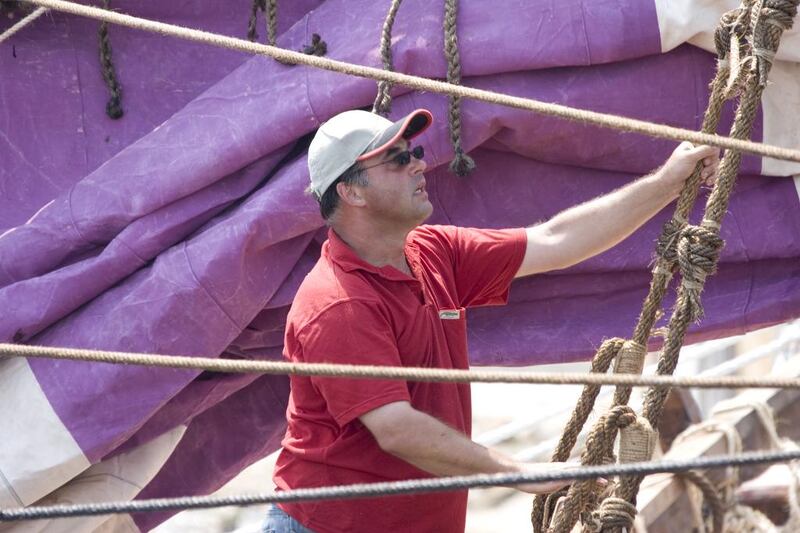We Lebanese have a lot for which to thank the Phoenicians. It is no accident that we are widely seen as some of the canniest businesspeople on the planet and there is probably no corner of the Earth that a Lebanese has not considered opening a business. The source of all this energy can be traced back to the 12th century BC.
From then until around 334BC, the Phoenicians created the most powerful trading fleet in the known world, controlling almost all the Mediterranean trade routes, establishing commercial colonies under one socioeconomic system, based on interregional trade and exchange.
They perfected the art of sailing and navigation as they sold their glassware, purple dye, olive oil and wine. It is no exaggeration to say that this millennia-old transactional spirit is what defines the modern Lebanese business model.
I mention all this because Lebanon’s Phoenician legacy is once again being put to the test, this time by the British sailor and explorer Philip Beale, who wants to cross the Atlantic with a team of sailors on a replica of a Phoenician ship to prove that our great seafaring ancestors had the navigational skills to make it to the Americas 2,000 years before Christopher Columbus.
Already a few major Lebanese companies have been hit up for sponsorship money. For once I hope a few can see the potential. Assuming there is proper press coverage, it’s a wonderful opportunity to showcase Lebanon’s business heritage and generate a much-needed feel-good spirit, especially back home where last week there was further evidence that our entrepreneurial spirit is somewhat under the cosh.
For it is fair to say that there is little of the Phoenician business acumen in our current governments. The new administration, which has promised wide-ranging socioeconomic reform, has so far done little to improve the business environment. Indeed it has only made it worse by creating a raft, if you’ll excuse the pun, of new taxes that promise to curb the spending power of the average Lebanese household.
It has also refused to admit that the state is incapable of running the national grid, claiming that the solution to nearly 40 years of blackouts is to rent more generator ships. They tried this is in 2013, when the state spent US$370 million hiring two Turkish vessels which did precisely nothing except break down. Meanwhile, the state’s continued legitimisation of Hizbollah has not helped to ease regional relations with the Gulf Arab nations.
Which will not in turn help Lebanon’s imminent tourist season, ensuring that once again we are unlikely to woo Arab tourists in the numbers that we really need to revive the ailing sector, despite what the current tourism minister Avedis Guidanian might have said last week when he spoke of renewed visitor interest from the GCC.
The reality is that Gulf Arab tourists are still wary of visiting a country where the threat of sectarian kidnapping is still very real. (In fact all Mr Guidanian, a Lebanese of Armenian descent, did achieve last week was to publicly insult Turkey, a country that allows Lebanese to visit without a visa, and declare that he preferred Armenia to Lebanon. Go figure.)
Another sign of Lebanon’s sad and gradual decline is the demise of the Executive MBA programme at the American University of Beirut, which was supposed to be the flagship course at the university’s Olayan School of Business. For many years it was popular with local business leaders eager to consolidate their experience with a bit of academic rigour, as well as with foreigners who believed in AUB’s prestige.
But above all, what better location to offer a blue-chip business course than the place where business was arguably invented?
Yet once again, a combination of a dire economy and heightened security fears proved fatal for an exciting initiative that was doing its bit to build brand Lebanon.
Philip Beale will be giving a presentation about his trip, which is due to set sail from Gibraltar in September, in New York on April 12. It’s just a pity he couldn’t do it in Beirut, where the spirit and legacy of the Phoenicians is needed more than ever.
Michael Karam is a freelance writer who lives between Beirut and Brighton.
business@thenational.ae
Follow The National's Business section on Twitter





